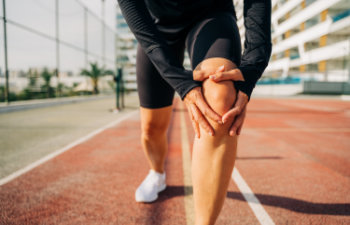
The patella, commonly known as the kneecap, plays a crucial role in knee joint function. It protects the knee joint and helps in transmitting forces from the thigh muscles to the lower leg, allowing for efficient movement. However, due to its vulnerable location and the considerable stress it endures during physical activities, the patella is susceptible to various injuries. Here are some of the top patella injuries, their causes, symptoms, and treatment options.
Patellar Tendinitis (Jumper’s Knee)
- Causes: Patellar tendinitis is often caused by overuse, particularly in sports that involve repetitive jumping or quick changes in direction, such as basketball or volleyball.
- Symptoms: Common symptoms include pain and tenderness around the lower edge of the patella, especially during physical activities and climbing stairs.
- Treatment: Rest, ice, compression, and elevation (RICE) are initial treatments. Physical therapy, anti-inflammatory medications, and in severe cases, corticosteroid injections may be recommended. Lifestyle modifications and proper warm-up techniques can help prevent recurrence.
Patellar Dislocation
- Causes: Patellar dislocation occurs when the kneecap is forced out of its normal position within the patellofemoral groove. This can result from a traumatic injury or an underlying anatomical issue.
- Symptoms: Intense pain, swelling, and visible deformity of the knee are common symptoms. The patient may have difficulty moving the knee and may feel instability.
- Treatment: Immediate reduction (putting the patella back in place) is essential. Following this, immobilization, physical therapy, and sometimes surgery to repair damaged ligaments or realign the patella may be required.
Patellar Fracture
- Causes: Patellar fractures can result from a direct blow to the knee, a fall, or strong contraction of the quadriceps muscles.
- Symptoms: Severe pain, swelling, and an inability to straighten or bear weight on the affected leg are typical symptoms.
- Treatment: Treatment depends on the fracture’s severity and location. Nonsurgical options may include casting or splinting, while more complex fractures may require surgical fixation with pins or screws.
Patellar Tendon Rupture
- Causes: This injury often occurs due to a sudden forceful contraction of the quadriceps muscles, typically during activities like jumping or falling.
- Symptoms: Individuals with a patellar tendon rupture experience a loss of knee extension strength, pain, and a gap just below the kneecap.
- Treatment: Surgical repair is the primary treatment option for patellar tendon ruptures, followed by rehabilitation to regain strength and function.
Runner’s Knee (Patellofemoral Pain Syndrome)
- Causes: Runner’s knee is a general term for various conditions causing anterior knee pain. It can result from overuse, muscle imbalances, or problems with patellar tracking.
- Symptoms: Pain behind or around the patella, especially during activities like running or prolonged sitting with the knees bent.
- Treatment: Treatment typically involves rest, physical therapy to correct muscle imbalances, bracing, and pain management. Identifying and addressing the underlying cause is crucial for long-term relief.
Patella injuries can range from overuse conditions like patellar tendinitis to acute injuries such as dislocations or fractures. Timely diagnosis and appropriate treatment are essential to ensure the best possible outcomes and prevent long-term complications. Rehabilitation, lifestyle modifications, and protective measures can also play a significant role in preventing recurrent patella injuries and maintaining knee joint health. If you suspect a patella injury, it’s important to consult a knee specialist for a thorough evaluation and treatment plan tailored to your specific condition. Dr. Fredrick Beuchel, Jr. is a renowned orthopedic surgeon specializing in knee conditions – contact his Robotic Joint Center in NYC to schedule a patella injury consultation.
Posted on behalf of
New York, NY 10021
Phone: (212) 308-3089
FAX: (646) 844-1396
Email: Info@RoboticJointCenter.com
Mon – Fri: 9 AM – 6 PM